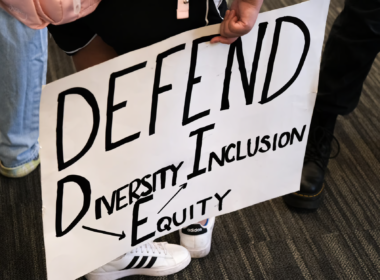Members of Generation X – the 35 million Americans born between 1965 and 1972 – have become less Christian and less Republican over the course of their adult lives, a new study by Trinity College shows. Striking declines in the number of Catholics and Baptists combined with sharp increases in the number of non-denominational Christians and those claiming no religious affiliation (Nones) show increased religious polarization in this generation, even as its political re-orientation towards the Democratic Party has been accompanied by modest growth in the number of political independents.
Born in the wake of the Second Vatican Council in 1965, the Gen X-ers constituted the most Catholic generational cohort in American history, with fully one-third of them identifying as Catholics in 1990. But two decades later, approximately one out of five had fallen away from the faith. It was only thanks to the addition of approximately one million Latino Catholics their own age that the proportion of Gen X Catholics decreased to only 26 percent of the cohort.
In addition, shifts in religious identification since 1990 have resulted in the ranks of the Nones swelling by 67 percent (2.2 million persons) and those in the conservative, non-denominational Generic Christian tradition growing by 51 percent (1.8 million). Put another way, the percentage of self-proclaimed Nones increased from 11 percent to 16 percent of this cohort between 1990 and 2008. This increase is surprising since Americans have historically increased their religious identification between early adulthood and their mid-40s, as theymarry, have children, and become settled in their communities.
Those were among the key findings of a new report by Barry Kosmin and Juhem Navarro-Rivera at Trinity College, who looked at the religious and political affiliations of Generation X, whose members reached adulthood during an era when American society was much influenced by the Christian Right. The findings are important as predictorsabout the future of American society, particularly the relationship betweenreligion and politics, issues that have been front and center during this year’s presidential campaign.
The data are derived from the American Religious Identification Survey (ARIS), a large, nationally representative sample of adults in the Continental United States. The surveys were conducted in 1990 and again in 2008, highlighting trends over an 18-year period. The 1990 ARIS involved 113,723 respondents, including 16,959 adultsbetween the ages of 18 and 25 years. The 2008 ARIS had an overall sample size of 54,461, with 6,407 respondents between the ages of 36 and 43 years.
“Generation X has shifted its allegiances to a surprising degree” said Barry Kosmin, director of the Institute for the Study of Secularism in Society and Culture (ISSSC) at Trinity. “Many in this generation of Americans have abandoned their religious roots and political affiliations in adulthood. Historically and sociologically, that’s an unexpected development.”
In terms of political affiliation, Gen X-ers leaned Republican by 5 percentage points in 1990 (34 percent to 29 percent Democratic), but in 2008 they favored the Democratic Party by 7 percentage points (33 percent to 26 percent Republican) This partisan shiftaway from the GOP was even more pronounced among Generation X Nones. In 1990, Nones were evenly divided between Democrats and Republicans, but by 2008, Nones leaned Democratic by more than 2 to 1 (33 percent to 15 percent).
“The fact that identification with religion declined among Generation X as they aged suggests that the secularization of Americans is not just about young people from today’s Millennial Generation abandoning religion because it has become too politicized,” said Juhem Navarro-Rivera, a research fellow at the ISSSC. “It is also an ongoing and wider process that involves older generations in American society, as exemplified by Generation X.”
The report’s religion data are based on responses to the question: What is your religion, if any? And the political party data are based on responses to the question: Generally speaking, do you usually think of yourself as a Republican, Democrat or Independent?
For more information about the ARIS series methodology, please visit: http://commons.trincoll.edu/aris/about-aris/metholodogy.
For more information contact Barry Kosmin at 860-297-2388 or barry.kosmin@trincoll.edu; or Juhem Navarro-Rivera at 860-297-4227 or juhem.navarrorivera@trincoll.edu.
To download a copy of – The Transformation of Generation X: Shifts in Religious and Political Self-Identification, 1990-2008 please visit:
http://commons.trincoll.edu/aris/files/2012/05/ARISGENX2012.pdf









